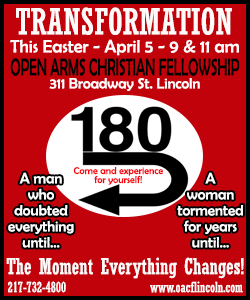|
 The election pits President Goodluck Jonathan against former
military ruler Muhammadu Buhari for the votes of an electorate
divided along ethnic, regional and religious lines in Africa's most
populous nation. The election pits President Goodluck Jonathan against former
military ruler Muhammadu Buhari for the votes of an electorate
divided along ethnic, regional and religious lines in Africa's most
populous nation.
The stock market was down 17 percent by 12.15 (1115 GMT), Thomson
Reuters data showed. The naira was pegged at around 199 to the
dollar by the central bank last month after it shut down the
interbank market.
Even before preliminary tallies were recorded, the opposition All
Progressives Congress (APC) rejected the outcome in Rivers state,
headquarters of Africa's biggest oil industry, and denounced the
vote there as "a sham and a charade".
The INEC election commission said first results from 120,000 polling
stations nationwide should be available on Sunday evening but later
pushed this back to Monday evening.
Some observers cautiously praised the conduct of the election.
The U.S. government's National Democratic Institute (NDI), which
promotes democracy and open government, praised the election,
despite the technical problems and sporadic violence.

"Nigerian voters conducted themselves in a peaceful and orderly
manner on election day," it said. NDI official Christopher Fomunyoh
said in a news conference on Monday that the group saw no evidence
of the military interfering in the poll, as many had feared.
Turnout among the 56.7 million registered voters appears to have
been high.
All eyes are now on collation, historically an area where figures
were fiddled, with results sometimes completely made up.
COLLATION PROCESS
"We have concerns about the collation process because of the multi
layered collation mechanism," Fomunyoh said, referring to the fact
that results are collated separately in each polling station and
state as well as in the main center in Abuja, a practice he said
should be reviewed given the new technology.
Results are expected to start streaming in this afternoon.World
powers and international investors are watching how Africa's biggest
economy and top oil producer, conducts this poll and whether it can
improve on its patchy record.
Fitch revised Nigeria's credit outlook to negative on Monday, while
affirming its BB- rating.
On Sunday, hundreds of sympathizers chanted "APC" outside the
electoral commission office in the oil city of Port Harcourt,
prompting police to fire warnings shots. One group stoned a car they
thought carried ballots.
[to top of second column] |

"There was no election in Rivers," APC polling agent Achinike
William-Wobodo said, calling for a re-vote. Protests continued on
Monday, and police used tear gas to disperse a protest by at least
100 female APC protesters, a Reuters reporter saw.
"We were protesting ... going to INEC (the electoral commission) and
they tear gassed the women," said protester Eva Ibiba.
A policeman at the scene said: "They were disturbing the peace ...
their intention was to destroy INEC materials."
In a sign the opposition will challenge results elsewhere, the APC
governor of the southern Imo state, Rochas Okorocha, denounced the
conduct of the election in his region and accused the military of
meddling in the result.
In Bauchi state in the volatile Middle Belt, where Nigeria's largely
Christian south and mostly Muslim north meet, hundreds of youths
gathered outside the INEC office shouting APC slogans and shouting
that they would protect their vote from rigging, a Reuters reporter
saw. The military fired warning shots.
The tensions the prospect of a disputed national outcome and a
repeat of the violence that erupted after the last election in 2011,
when 800 people were killed and 65,000 displaced in the mainly
Muslim north.
INEC chairman Attahiru Jega said he was investigating the Port
Harcourt complaints, which alleged that opposition agents were
kicked out of vote-tallying meetings.
In Kaduna, the northern city worst-hit by the 2011 post-election
violence, the streets were virtually devoid of traffic and many
shops were shuttered.

(Additional reporting by Bate Felix in Kaduna, Ardo Abdallah in
Bauchi, Julia Payne and Tife Owolabi and in Port Harcourt; Editing
by Janet McBride and Giles Elgood)
[© 2015 Thomson Reuters. All rights
reserved.]
Copyright 2015 Reuters. All rights reserved. This material may not be published,
broadcast, rewritten or redistributed. |